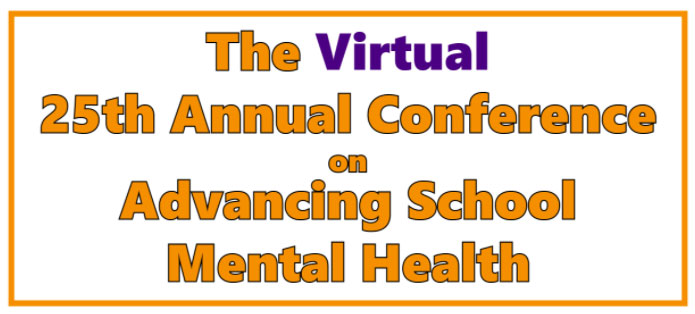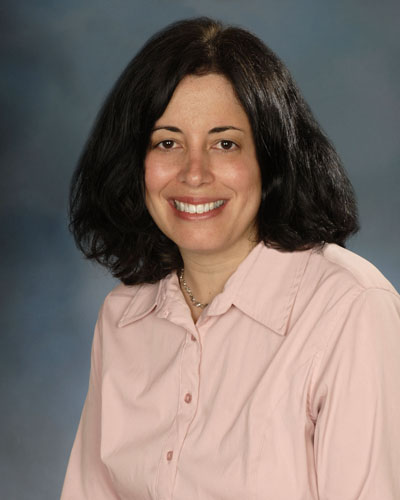October 29, 2020 | Deborah Kotz

UMSOM’s National Center for School Mental Health Annual Meeting Will Focus on Equitable and Effective School Mental Health as Schools Navigate New Learning Landscapes
The National Center for School Mental Health at the University of Maryland School of Medicine (UMSOM) will be hosting its virtual 25th Annual Conference on Advancing School Mental Health on October 29, 2020, from 12:00 PM to 3:00 PM (ET). This year’s theme focuses on equitable and effective school mental health and will include a focus on COVID-19 mental health issues including children experiencing grief from the loss of a loved one during the pandemic and stressors from disruptions in learning.
The conference will bring together over 7,000 national and international participants to advance knowledge and skills related to school mental health practice, research, training, and policy. They will be focusing on hot topics like bringing school-based mental health supports into the home environment through distance learning, performing student mental health well-being checkups, and providing social and emotional learning through virtual platforms.
 “Our school systems are facing unique challenges this year due to COVID-19, and we feel it is vital to address those in this year’s meeting,” said Sharon Hoover, PhD, Professor of Psychiatry and Co-Director of the National Center for School Mental Health at UMSOM.
“Our school systems are facing unique challenges this year due to COVID-19, and we feel it is vital to address those in this year’s meeting,” said Sharon Hoover, PhD, Professor of Psychiatry and Co-Director of the National Center for School Mental Health at UMSOM.
“Our theme this year will also focus on inequity, racism and discrimination among communities of color, all of which have been brought to the forefront during the pandemic. Presenters will also discuss the emotional strain on educators and best strategies to support their wellbeing.”
Conference attendees include educators, administrators, student instructional support personnel, mental health practitioners, policymakers, researchers, child health advocates, as well as parents and students. Along with the virtual sessions, there will be over 250 pre-recorded presentations for attendees to view.
One plenary session from Dr. Janine Jones will focus on equipping school personnel on culturally-responsive school mental health interventions. Jessica Gonzalez will share the Classroom WISE: Well-being Information and Strategies for Educators curriculum, co-developed with the NCSMH. Several sessions focus on dealing with violence and trauma and how a child’s exposure to violence can impact their learning, behavior and overall health.
 “By the end of the virtual conference and by listening to the pre-recorded sessions, we hope attendees will be able to identify strategies for effectively implementing a full continuum of integrated school mental health approaches to support students’ academic, behavioral, and social-emotional success,” said Nancy Lever, PhD, Associate Professor of Psychiatry and Co-Director of the National Center for School Mental Health at UMSOM. “We also expect them to learn evidence-based practices in school mental health and to identify action steps they can take to meaningfully partner with youth and families in school mental health.”
“By the end of the virtual conference and by listening to the pre-recorded sessions, we hope attendees will be able to identify strategies for effectively implementing a full continuum of integrated school mental health approaches to support students’ academic, behavioral, and social-emotional success,” said Nancy Lever, PhD, Associate Professor of Psychiatry and Co-Director of the National Center for School Mental Health at UMSOM. “We also expect them to learn evidence-based practices in school mental health and to identify action steps they can take to meaningfully partner with youth and families in school mental health.”
The mission of the National Center for School Mental Health is to strengthen policies and programs in school mental health to improve learning and promote success for America's youth. From its inception in 1995, the Center's leadership and interdisciplinary staff have promoted the importance of providing mental health services to children, adolescents, and families directly in schools and communities. The Center recently received a 5-year federal award to lead a school-based health services quality improvement and sustainability initiative that will review and refine current national performance measures and support states to effectively assess social determinants of health and education via school-based health services.
“The National Center for School Mental Health fits squarely within our mission at UMSOM to safeguard the health of children and ensure the success and vibrancy of the next generation of doctors, educators and community leaders,” said Dean E. Albert Reece, MD, PhD, MBA. “Identifying ways to provide mental health services in schools can level the playing field for all children and adolescents by eliminating the health disparities that plague our nation’s most vulnerable students.”
About the University of Maryland School of Medicine
Now in its third century, the University of Maryland School of Medicine was chartered in 1807 as the first public medical school in the United States. It continues today as one of the fastest growing, top-tier biomedical research enterprises in the world -- with 43 academic departments, centers, institutes, and programs; and a faculty of more than 3,000 physicians, scientists, and allied health professionals, including members of the National Academy of Medicine and the National Academy of Sciences, and a distinguished recipient of the Albert E. Lasker Award in Medical Research. With an operating budget of more than $1 billion, the School of Medicine works closely in partnership with the University of Maryland Medical Center and Medical System to provide research-intensive, academic and clinically-based care for more than 1.2 million patients each year. The School has over 2,500 students, residents, and fellows, and more than $540 million in extramural funding, with most of its academic departments highly ranked among all medical schools in the nation in research funding. As one of the seven professional schools that make up the University of Maryland, Baltimore campus, the School of Medicine has a total workforce of nearly 7,000 individuals. The combined School and Medical System (“University of Maryland Medicine”) has an annual budget of nearly $6 billion and an economic impact more than $15 billion on the state and local community. The School of Medicine faculty, which ranks as the 8th highest among public medical schools in research productivity, is an innovator in translational medicine, with 600 active patents and 24 start-up companies. The School works locally, nationally, and globally, with research and treatment facilities in 36 countries around the world. Visit medschool.umaryland.edu
Contact
Office of Public Affairs
655 West Baltimore Street
Bressler Research Building 14-002
Baltimore, Maryland 21201-1559
Contact Media Relations
(410) 706-5260
Deborah Kotz
410-706-4255
dkotz@som.umaryland.edu
